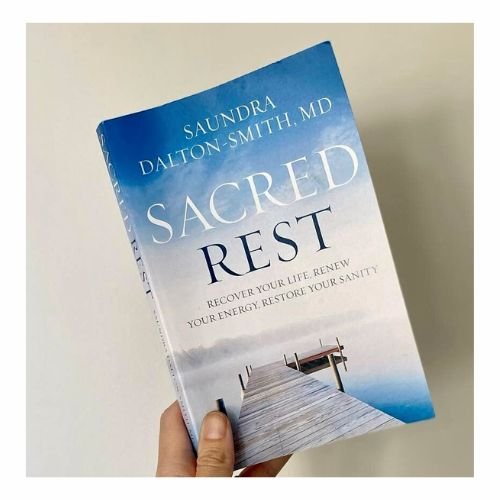DMV Review: The Henna Artist by Alka Joshi
Set against the rich backdrop of 1950s Jaipur, The Henna Artist tells the captivating story of Lakshmi Shastri, a woman who defies societal expectations to carve out her own destiny. After escaping an abusive marriage, she reinvents herself as Jaipur’s most sought-after henna artist, catering to the city’s elite women while secretly providing herbal remedies—including contraceptives—to those who seek control over their own bodies.
Lakshmi’s knowledge of herbal medicine, passed down from her mother-in-law, was not just a skill but a means of survival. Even in her marriage, she had taken control of her body, using her knowledge to prevent pregnancy in a relationship she wanted no part of. In a world where women were often trapped by circumstances beyond their control, Lakshmi’s choices were both an act of rebellion and self-preservation. But as she built her life, carefully keeping her past buried, unexpected challenges forced her to confront everything she had tried to leave behind.
The sudden arrival of her younger sister, Radha, upends Lakshmi’s world. Radha is fiery, naïve, and unprepared for the life her sister has built. Their relationship, filled with love, resentment, and misunderstandings, became a major discussion point in our book club. Was Lakshmi a self-made woman doing what she had to in order to survive, or was she selfish—focused only on her own success at the expense of those who needed her? And was Radha simply a reckless young girl, or was she responding to a world that never gave her stability?
Beyond the layered relationships, The Henna Artist masterfully explores the rigid social structures of the time—class divisions, gender roles, and the constant tug between tradition and modernity. Lakshmi’s work as a henna artist gave her access to the most powerful women in Jaipur, yet she was still bound by the invisible rules of her society. Every step she took toward independence came with a cost.
As the novel unfolds, secrets unravel, betrayals cut deep, and choices must be made. With breathtaking descriptions of Jaipur’s colors, textures, and traditions, The Henna Artist transports readers to another time and place, immersing us in a world both beautiful and unforgiving. While the timeline felt fast-paced and some character arcs required suspension of disbelief, the emotional weight of the story made it impossible to put down.
Ultimately, The Henna Artist is a story of resilience, ambition, and the sacrifices women make in their quest for freedom. It left us questioning: What does it truly mean to be free?
BnD DMV Rating: 8.9/10
BnD PH Review: The Henna Artist
Alka Joshi’s The Henna Artist is a beautifully immersive novel that transports readers to 1950s Jaipur, following Lakshmi, a fiercely independent henna artist who has built a life on her own terms after escaping an abusive marriage. Her carefully cultivated world is upended by the arrival of her younger sister, Radha, whose recklessness forces Lakshmi to confront her past and question the choices she has made. The novel sparks thought-provoking discussions on female autonomy, class divides, and the moral compromises women must navigate in a patriarchal society. Lakshmi’s ambition and resourcefulness are admirable, but her willingness to manipulate social elites for survival raises ethical dilemmas—does independence justify deception? As the story unfolds, we see her transition from a lone survivor to someone who embraces connection and responsibility.
One of the most striking aspects of the novel is the way Joshi portrays how women, across all social classes, manage male power and expectations. Lakshmi wields her knowledge of herbal medicine and beauty rituals as a form of agency, subtly influencing the wealthy women she serves while avoiding the dominance of their husbands. Radha, however, is more naive, suffering deeply from the double standards imposed on women, particularly regarding reputation and sexuality. Meanwhile, secondary characters like Parvati, a powerful society matron, show how privilege doesn’t always equate to freedom—women’s choices remain shaped by the men around them. Malik, the street-smart orphan, offers a refreshing counterpoint to traditional masculinity, proving that trust and loyalty can exist even in a world governed by self-interest. Overall, The Henna Artist is an engaging and layered read that raises compelling questions about resilience, sacrifice, and whether true independence is ever fully possible for women in restrictive societies. Rating: 8.5/10—highly recommended by BnD Port Harcourt
The Los Angeles Review: The Henna Artist
The Los Angeles chapter gave the book a 9 out of 10. The book was a hit. The writing was beautiful—Alka Joshi truly captured the essence of Jaipur and the world around Lakshmi. Her vivid descriptions made it easy to visualize the setting, and the story flowed effortlessly. It was engaging from beginning to end.
During our discussion, we explored the major themes: love, deceit, survival, abuse, family responsibility, cultural norms and societal expectations, class, and caste. One of the most compelling questions that came up was around the complexity of life and the human need for self-preservation—is deceit ever justified?
Had Lakshmi been compliant, stayed married to her husband, had babies , this story might never have happened. But she was the daughter of an activist—a man who risked his family and social status to do what was right (and only example of council culture). His children clearly inherited his spirit of courage and determination, evident in how they navigated the hard and unforgiving world they found themselves.
Though the book is deeply rooted in Indian culture, the story was relatable to our group. It served as another reminder that we are more alike than we are different.
Some of us are planning to continue the trilogy and follow the rest of Lakshmi’s journey.
Dallas Review: The Henna Artist
The Henna artist is a beautifully written work of fiction set in 1950s India. It details the sacrifices and struggles of a young but witty Henna artist called Lakshmi. Born into poverty and forced into an arranged marriage at a young age, Lakshmi takes her fate into her own hands as she flees her marriage and abusive husband. Her conviction to be successful is evident as she climbs the society ladder, crafting admirable designs on the bodies of royals and wealthy women. Despite her efforts to make a better life for herself and her young and impressionable sister, her circumstances take a turn for the worse. Lakshmi’s story underscores the challenges and perils of young women born into poverty in a hugely patriarchal society.
Our (Dallas ladies) discussions echoed empathy, outrage and a certain degree of helplessness for her and her family’s situation. We spent some time mulling over the injustice experienced by thirteen year old Radha when she gets pregnant by the son of a rich aristocrat. We further explored the unfortunate events that led to Lakshmi’s loss of her business and income. We noted that the role which money and power played in Lakshmi’s fate is not unlike today’s society. Ultimately, we were encouraged that Lakshmi’s story had a silver lining. Her skill in the use of herbs landed her a reputable job at a hospital. We were excited to find out what became of her fate and several ladies intimated that they had began reading book 2 of the series.
The Henna Artist offered us very good conversations that we won’t soon forget and we rated it a 9 out of 10.
Abuja Review: “The Henna Artist” by Alka Joshi
The ABUJA CHAPTER recently gathered to discuss Alka Joshi’s captivating novel, “The Henna Artist”. While some members found the book’s cultural context unfamiliar, the majority were enthralled by Joshi’s meticulous portrayal of Lakshmi’s world.
The story begins slowly, introducing a cast of characters that gradually gain momentum, propelling us toward a thrilling conclusion. Our discussion, guided by the book’s endnotes, delved into themes of culture, entrepreneurship, family, survival, and class.
We explored Lakshmi’s remarkable resilience and doggedness, wondering if these traits were inherited from her activist father. The group also debated Lakshmi’s decision to sell the house, pondering alternative outcomes.
Interestingly, despite the book’s Indian cultural context, our conversation extended to similar cultural traditions and shocks in Nigerian societies. Some members expressed interest in reading the trilogy, eager to discover if Lakshmi finds romance and happiness.
Overall, the Abuja chapter rated “The Henna Artist” 8 out of 10. If you’re looking for a thought-provoking and immersive read, this book is definitely worth considering!
Rating: 8/10
Recommendation: A great choice for book clubs and readers interested in cultural fiction, entrepreneurship, and women’s empowerment.
Lagos Review by Jennifer Esiaba
The Henna Artist shines a real look at a woman’s fight for freedom in a world that keeps trying to control her. Lakshmi is smart, resourceful, and determined, but what stood out most was how she had to constantly choose between survival and her dreams.
The book handles class, gender, and shame without exaggerating. The power dynamics between Lakshmi, her clients, and society felt very real. I liked that it didn’t rush to a happy ending—because real life isn’t always tidy. I also appreciated how food, herbs, and henna weren’t just background—they were tools Lakshmi used to build her independence.
It made me think about how many women still live on that line between being respected and being discarded. The writing was straightforward, the plot was easy to follow, and the emotional shifts felt earned.
Rating: 7
Well-written and important. Some parts felt slow, but overall it was worth reading and discussing. It sparked real thoughts about womanhood, control, and quiet strength.





